- Home
- neetha Napew
Forbidden Land Page 10
Forbidden Land Read online
Page 10
Suddenly he was a bird, a hawk, an eagle, a great tera torn with mighty wings capable of taking him straight into the watching faces of the moon and sun. The wings of his vision veered over the familiar contours of high, cloud shrouded hills, and his eyes penetrated the clouds, allowing him to see through the hills, into the dark, low-ceilinged, fire-charred interior of a cave. And there he saw the wanawut. She was sleeping, with two cubs dreaming contentedly at her hideous breasts!
The child lived! Manaravak lived! The beast had not consumed it. The spirits of Creation had taken pity on Torka and allowed the child to live. They had also taken pity on a magic man whose powers had failed him, summoning up the spirit wind and leading Karana to this truth. They had allowed him this one chance to redeem his earlier betrayal of Torka. He knew where the child was! He knew that it lived. He could lead Torka to his son! Excitement filled him. Well-armed and unafraid, they could wrest the baby from the beast! The forces of Creation would help them to slay the wanawut. The people would know that the forces of Creation still favored their headman. They would accept Torka and his twins without reservation. All would be well within the band again.
And Karana would be a magic man, a mystic, a shaman such as the world had never known! How proud Mahnie and Lonit would be of him! His excitement cooled. What man would continue to name as son the one who had wantonly lied about the death of a child when, with only a word, he might have led others to save it from the jaws of the wanawut? Karana shook his head. Not even Torka would do that. Nor could he blame him. Karana exhaled with grim resignation. By deliberately misleading Torka into thinking that the second-born twin was dead, he had committed himself to a lie from which he could see no retreat. Torka had managed to save the life of one of his twins and was resigned to the loss of the other. Why upset him with the truth when he needed his wits about him—as well as his trust in the advice of his magic man and his eldest .. . son.
Bitterness soured his mouth. Let the wind of vision try to lead him; he would not follow. The wind sighed as though in disappointment, and the wings that held Karana sky bound began to melt away. He felt himself falling, sliding toward earth past a moon that turned into darkness as he passed, through cold rivers of stars upon a waning tide of the Seeing wind. Would it hurl him to his death now that he had decided not to heed the vision it had offered?
Let it try! He straddled it, gripped it with his arms and thighs, and rode it as he had once imagined how it might be to ride the stallions of the tundral steppe. The earth was rushing up to meet him. He was certain that he was going to crash and die until, beyond the camp, he saw the great mammoth plodding into the face of the rising sun, into a wide, open corridor of grassland that stretched between huge, tumbled, ice-ridden ranges. It was a wondrous ribbon of tundra that flowed on and on before veering southward into the mists of distance and the unknown reaches of the Forbidden Land, eastward out of the land of the wanawut!
Beware, Karana. I have seen your death .. . and Torka’s in the face of the rising sun, beyond an endless corridor of ice and storm.. ..
Once again the haunting, threatening voice of Navahk sliced through his consciousness as he slid unseen into his own body and stood glassy-eyed beside those who had no idea that he had been away.
Only seconds had passed since Zhoonali had called out to Torka and Cheanah, but in that time Karana saw Torka release an arm lock that had pinned Cheanah flat on his belly. Staring at his adopted son out of stern and steady eyes, Torka knelt back from his opponent, then stood, allowing Cheanah to sit up, scowling belligerently.
“We must all die someday.” Karana’s reply to the ghost of his father made no sense to anyone who heard it, except as a frightening, disconnected threat.
The power was leaving him. He could feel it. He had betrayed the gift of Seeing. He had turned from the path through which he might have saved the life of a child, because he feared losing the love of one who had raised him and named him Son. With the departure of the great tusker, Karana knew what would be—what must be—and managed to convince himself that this would be best for all.
With the eyes of every member of the band on him, Karana consciously drew himself to his full height and continued to stand with his arms raised. He was aware of Mahnie’s troubled gaze but more aware of Zhoonali’s glaring at him as if fighting for control of the moment; he could not allow her challenge to continue. He slowly lowered one arm as if it were a lance. With his hand curled and his index finger extended, he pointed violently at the old woman. The invisible power of his intent flew from his fingertip, striking the old woman like a projectile.
Startled, her own pointing arm fell to her side; she grasped it with the other and cradled it protectively against her torso. Karana could not tell if he had caused her actual pain, nor did he know why she had been pointing at him in the first place. But Zhoonali was visibly frightened by the change in the magic man whose powers she had openly doubted until now, and she nearly choked on the words that she had been about to speak. They croaked and went leaping down her throat like frightened toads.
“As all men must die ...” Karana said, altering his statement slightly to strengthen the following words, “so must all things change.” He looked directly and confidently into the eyes of the old woman, and to the astonishment of all who watched, she shrank visibly within the skin of the great white cloak that covered her from the top of her greasy head to the tips of her booted toes.
Karana did not miss the low, awestruck murmurs of his people and the expression of bewilderment that replaced Cheanah’s belligerence as the big man climbed to his feet.
He had them now! He would bend them to his will! Torka’s firstborn twin would live whether or not Torka bested Cheanah in hand-to-hand combat .. . and although the second-born twin would live or die at the whim of the wanawut, what matter? Torka would never know. It was only one tiny son. Torka had another.
Beware! Karana’s belly tightened at the sudden inner sting of warning. Memories flared within him—he himself had been abandoned at Navahk’s command with so many other little ones of his band ... for the “good” of the people. It was so long ago, in a land so far away, in starving times, in the depth of a winter that had eventually claimed all but him. A mere stripling, he had risked his life time and again to save the smaller children against the deadly cold, starvation, and the wolves that won against him in the end.
The memory still scalded: He had lived; they had died. But somehow they lived on within him, those sad-eyed, abandoned little children whose mittened, fur-clad bodies he had placed with his own hands to look upon the sky forever, before the wolves had come at last and he had barely managed to escape with his own life.
Had their mothers and fathers mourned them less because most of them had the consolation of other children, or because their deaths allowed others to survive on the scant rations that they might otherwise have consumed? No.
But now he understood, as he had not understood then, that decisions that went against the grain of compassion must sometimes be made. Now, as then, was such a time.
Beware! The warning was more intense than before, as was the recollection. This time it was of Sondahr, magnificent seeress of the Great Gathering. Teacher, lover, and true mystic, she had perceived the gifts of Seeing and Calling in him and had singled him out to become a recipient of her passion and wisdom. She had spoken to him of the differences between men of mere flesh and men of transcendent spirit. The latter were rare, she had said, assuring him that he was such a one. And she had warned him to be true to his gift, lest his magic become false, distorted, and a thing of darkness that, in the end, could serve neither itself nor the one who perverted it.
Sondahr’s warning filled him, but he would have no part of it, not now! She was dead—murdered. He was alive, magic man in a camp where he had been silent for far too long. Decisions needed to be made, which would affect the lives of all. They must be made quickly, for the sake of the future.
“Heed now the words
of Karana, for they are the words of the spirit wind!” he cried, and for an instant, he wondered if the forces of Creation were going to strike him deaf, mute, or blind as punishment for this outright lie. But the moment passed, and he was not struck down. “Zhoonali is right—there is another way for Torka and Cheanah to settle their differences! The great mammoth Life Giver walks eastward out of the land of this people! It is an omen. Let there be no further hostility between us. The traditions that bind Zhoonali’s people and Torka’s are not the same. If Torka would have his son Umak at his side, then Torka must do as he has always done: Let him take his women and children and follow that which is totem to him. Let him take his son and go out from among this people.”
And out of the land of the wanawut, he thought guiltily. Far from the truth of Karana s betrayal—a truth that must now live or die in the arms of the beast—as a beast . forever.
And so it was that Torka found himself cast out of the encampment to which he had brought his people. They were his people no more, and now he knew without a shadow of a doubt that they had never been.
“Go!” demanded Teean.
“Go!” urged the sons of Cheanah.
“Go!” cried Ekoh and Ram, Kap and Nuvik and Buhl, while their women arid children took up the cry and shook their fists and stamped their feet. The word became an echo that reverberated wildly through the gathering. And of all the people, only Simu and Eneela, and old Grek and Wallah, and their daughter, Mahnie, woman of Karana, remained silent.
“Go!” pressed Cheanah with an air of newfound authority as he basked in the open adoration of his sons and of his women.
Torka eyed him angrily. Looking at Cheanah, no one would have guessed that only moments ago the son of Zhoonali had been flat on his belly with his legs kicking helplessly and his right arm twisted back into a hold that was about to have him howling for mercy had Zhoonali and Karana not broken Torka’s concentration. Cheanah was a broader, heavier man, but Torka had known that he was also slow and clumsy, with a temper that cooled as quickly as his resolve. Once Cheanah was prone and straddled, Torka had felt the man’s anger ebb, along with his desire to deal with what he apparently considered to be unnecessary pain and possibly even death.
But now there was no way for Torka to take back the moment or to prove to the people that he was the better leader. Even if he were to fight Cheanah again and win, it would make no difference, for Karana had spoken. Through his mouth the forces of Creation had decreed who must stay and who must go.
Torka glared at Cheanah. “If any man should leave this valley, it should be you, not me,” he declared.
The guarded look in Cheanah’s eyes indicated that the son of Zhoonali recognized the truth. But truth in this camp had nothing to do with right or wrong, with justice or injustice; it had to do with the number of spear-carrying hunters who now stood with Cheanah against Torka.
They were many. Torka was alone. He felt the eyes of the people watching him, waiting to see what he would do. He did not do anything. He stood his ground and moved his gaze coolly from Cheanah to Karana.
The younger man’s face was set, his eyes steady and unreadable. Suddenly infuriated by the troubling and perplexing change in the magic man, Torka could not understand why one who had been as a son to him had become an adversary. With only a word or gesture on Torka’s behalf, the magic man could have turned the tide of events in Torka’s favor; but Karana had chosen to do just the opposite. Why?
“The time of the long dark has not yet ended,” Torka pointed out, desperately attempting to establish a way by which the magic man might rethink his position. “The days are short, and the great herds have not yet returned to this country out of the face of the rising sun. Has the spirit wind truly commanded you to ask one whom you name Father to abandon his newborn son to certain death or take his women and children to walk the frozen world alone, without the protection of a band?”
Karana hesitated for a moment. “The spirit wind has spoken. No twin may be suffered to live among these people. It is for them that the sky burns in anger, the earth trembles, and the wanawut howls. But for Torka there is no proscription speaking against the lives of twins. It is for him that the new star rises and the mammoth walks eastward into the new day.”
Confusion swept through Torka. Could the magic man be right? No! Lonit was too weak to travel, and they might be forced to go far before they found another hunting ground as fine as this one.
He was glad to overhear lana, standing to the lee of their pit hut. She reached down and laid strong, comforting hands on the shoulders of Summer Moon and Demmi. “Do not be afraid,” she said boldly to the trembling little girls. “We will go with Torka from this camp, and it will be a good thing. As long as Torka is headman of this family, we will need no band to protect us!”
The wind took her statement around the camp. All heard itf’and it made Torka proud. She was voicing her explicit faith not only in his leadership abilities but in Karana’s powers of revelation; unfortunately, Torka could not share the latter.
Cheanah saw the concern and indecision in Torka’s expression, as did every man, woman, and child in the band. Emboldened, the son of Zhoonali folded his arms across his chest in the manner of a man who has maneuvered a superior into a losing situation and knows that he is in control, even if he is undeserving of it. “Reconsider then and stay in the band of Cheanah!”
The band of Cheanah. The statement hung in the air, and no one disputed it.
Cheanah should have been more patient about claiming the band as his own. Given time, the idea might have become palatable to Torka; but Cheanah was enjoying himself far too much to think the situation through. It was good to be in a position of leadership again. He liked the way the other hunters and his women and sons were looking at him. And it was pure exhilaration to force Torka to yield to him for a change. He was Cheanah, and it was in his blood to lead.
It was also in his blood to be petty, perverse, and unforgiving. And so now, as he looked at Torka and made what he sincerely believed to be a generous offer, he smugly asserted his newly won authority and humiliated one who—although Cheanah might vociferously deny it even to himself—had come all too close to belittling him.
The sneer on his lips and the underlying nastiness to his magnanimous grandiloquence raised the hackles on Torka’s neck.
“Yes,” said Cheanah. “Torka should reconsider. Torka is welcome to stay in this good camp among those who have chosen Cheanah to lead them. But as Cheanah has sacrificed twins for the good of his people, so must Torka. Our women can always make more babies, yes? Unless, of course, Torka’s women are different or Torka fears that he cannot make more sons. In this case, gladly would Cheanah make them for him out of Torka’s women.”
He enjoyed Torka’s stunned reaction and listened as his sons snickered and his fellow hunters offered appreciative grunts. If Torka moved against him, the others would intercept him, so Cheanah could not control the irresistible urge to push Man of the West to the limit.
With a smile that was anything but affable, he raised a conciliatory hand that belied his words. “Let it not be said that Cheanah was not loyal to one who was once headman of this band. lana, second woman of Torka, may say that she is not afraid to walk from this camp, but Cheanah tells her now that if Torka insists upon keeping the son that is forbidden to him, she is welcome to stay and join Cheanah at his fire circle.”
The son of Zhoonali had entertained the idea before; it had been, and was now, an intriguing and erotic fantasy. Fully aware that Xhan and Kimm were scowling at him as they stood with the other women, he directed his next words specifically to lana. “If Torka goes from this camp, lana might be better served by this man. There is always room for another female at a hunter’s fire, to work skins, to make meat....”
Torka stiffened. No man could offer greater insult than to speak to another’s woman without his permission, but the son of Zhoonali had done that and more; he had actually dared to impugn Torka�
�s manhood. The insult was too great to overlook.
Torka took a step toward him that would surely have resulted in another confrontation, but Cheanah smirked with satisfaction as hunters Ram, Buhl, and Teean placed themselves belligerently between Torka and him. Even little Ank scurried forward like an aggressive baby badger.
Cheanah beamed. He had not felt better in years. He would thank Zhoonali later for her prodding by presenting her with a new bed fur and having Xhan and Kimm prepare a special meal for her. But now he eyed lana with undisguised lechery.
“Come,” he invited, gesturing her forward, knowing that by the customs of his people and Torka’s, the choice to accept or refuse was Torka’s to make for her. Should lana accept Cheanah without Torka’s permission, it was his right to come after her and kill her if he could, along with the man who seduced her into shaming him. But Cheanah was certain that Torka was no longer in a position to do this. And deep within his inherently promiscuous, woman-hungry core, the son of Zhoonali assumed that the lovely lana would accept him rather than walk off into almost certain death with Torka. After all, she had been the second woman of Man of the West for some time now but had borne no children. Cheanah assumed that she would be eager to try her luck with another man—especially if that man was headman now. But lana replied with open disdain. “As long as Torka would have lana by his side, there she will be—a sister for Lonit, a second mother for Torka’s children!”
“Why should lana be content to be second mother to any woman’s children?” Cheanah was certain she would change her mind with a little coaxing. “Torka is no longer headman. Torka has yet to give lana a child of her own. Yet now he would ask her to risk her life for the sake of the infant of a woman he favors more! How little lana means to him! And how warm and sheltering and full of meat is the camp of Cheanah!”

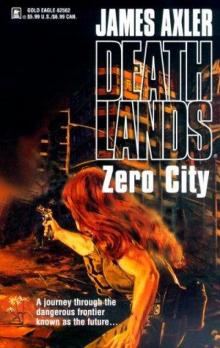 Zero City
Zero City Freedom Omnibus
Freedom Omnibus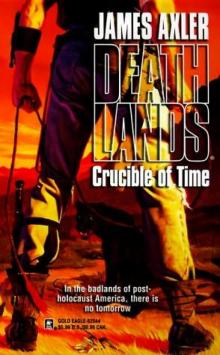 ACrucible of Time
ACrucible of Time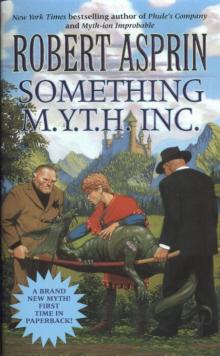 Something MYTH Inc
Something MYTH Inc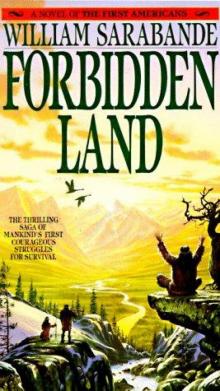 Forbidden Land
Forbidden Land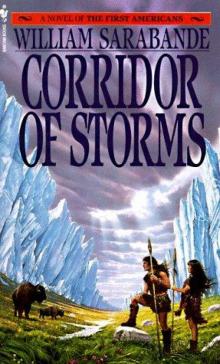 Corridor of Storms
Corridor of Storms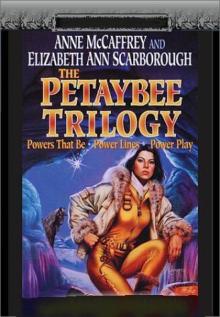 The Peytabee Omnibus
The Peytabee Omnibus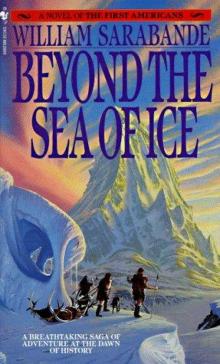 Beyond the Sea of Ice
Beyond the Sea of Ice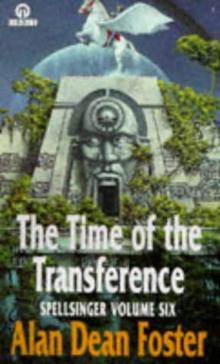 The Time Of The Transferance
The Time Of The Transferance EarthBlood
EarthBlood The Lexal Affair
The Lexal Affair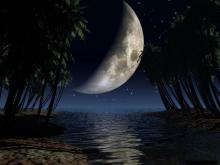 The Web
The Web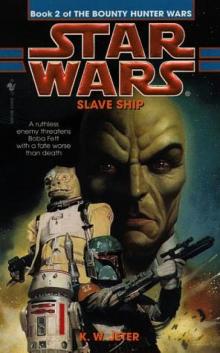 Slave Ship
Slave Ship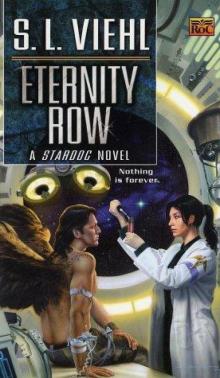 Eternity Row
Eternity Row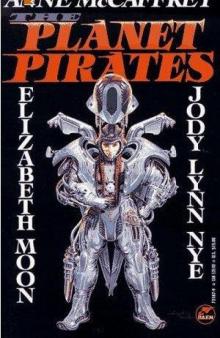 Planet Pirates Omnibus
Planet Pirates Omnibus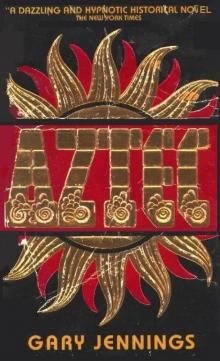 Aztec
Aztec The Awakening
The Awakening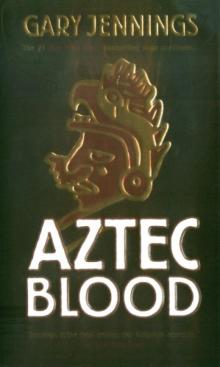 Aztec Blood
Aztec Blood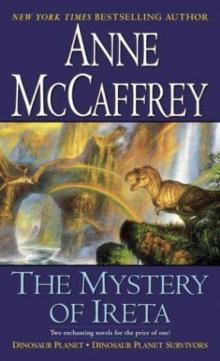 The Mystery of Ireta Omnibus
The Mystery of Ireta Omnibus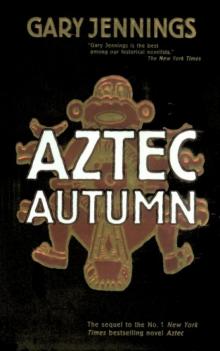 Aztec Autumn
Aztec Autumn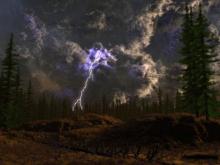 The Savage Horde
The Savage Horde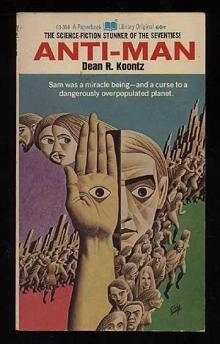 Anti - Man
Anti - Man Deep Trek
Deep Trek Starfall
Starfall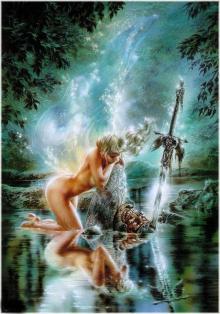 The Paths Of The Perambulator
The Paths Of The Perambulator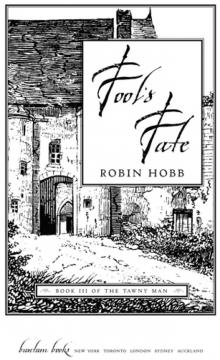 Fool's Fate
Fool's Fate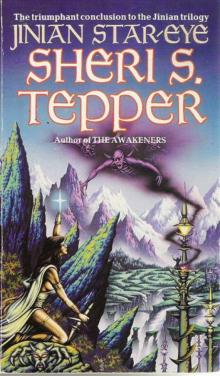 Jinian Stareye
Jinian Stareye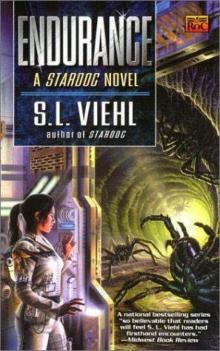 Endurance
Endurance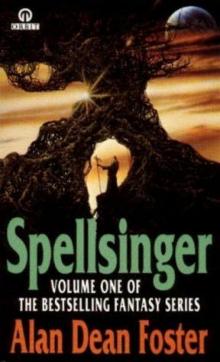 Spellsinger
Spellsinger Hybrids
Hybrids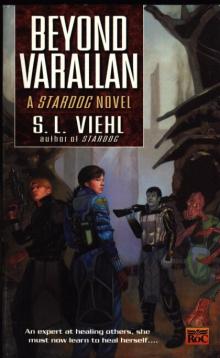 Beyond Varallan
Beyond Varallan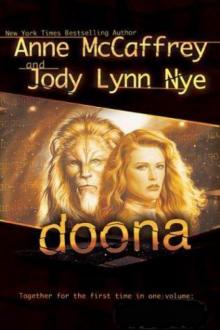 Doona Trilogy Omnibus
Doona Trilogy Omnibus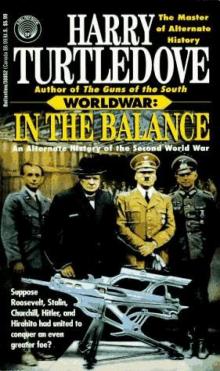 In th Balance
In th Balance Planerbound
Planerbound The Nightmare begins
The Nightmare begins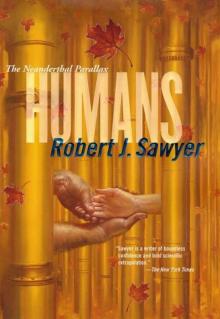 Humans
Humans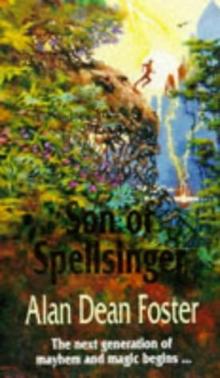 Son Of Spellsinger
Son Of Spellsinger